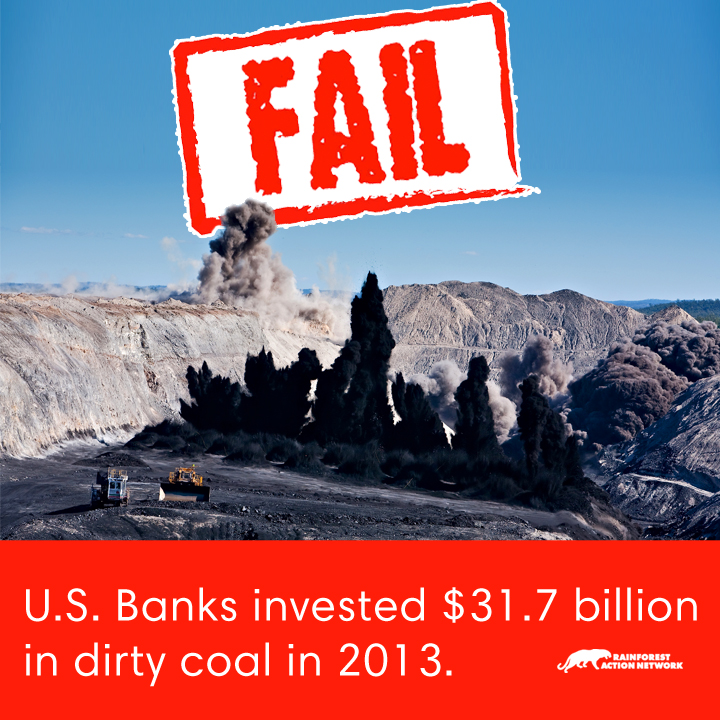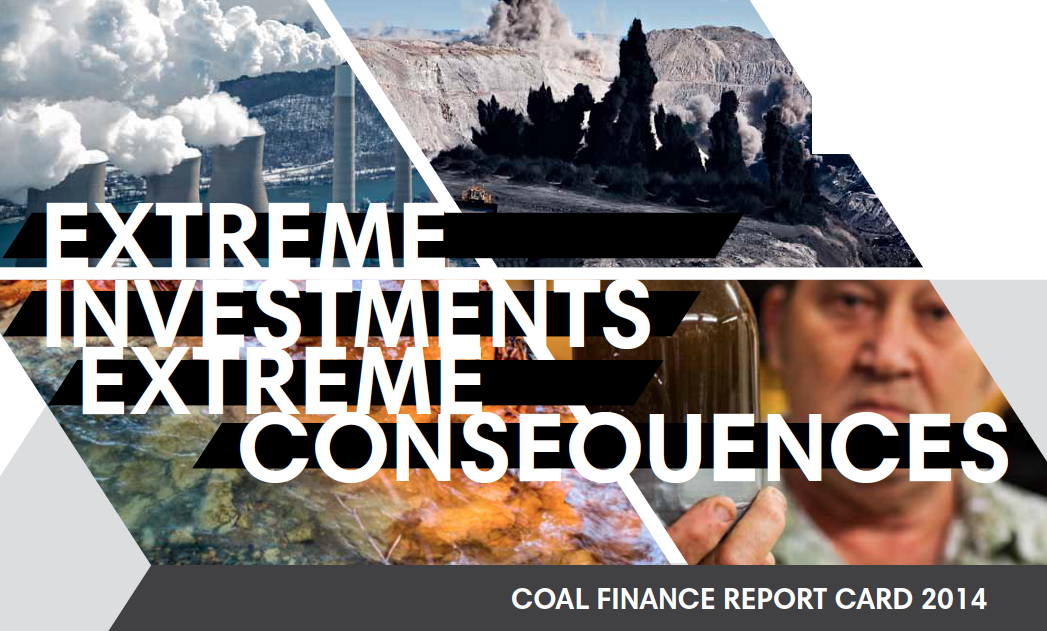For the first time since we began publishing coal finance report cards five years ago, we have an encouraging trend to report: Major banks have begun making noise about the growing financial risk associated with climate change—and specifically associated with coal, the top global contributor to carbon pollution.
On top of that, major banks have begun to cut ties with the biggest mountaintop removal (MTR) coal companies. This progress has exposed a growing gap between banks that are still sinking billions into coal, and those that are cutting ties with the worst-of-the-worst in the coal industry.
Today, RAN, the Sierra Club, and BankTrack released our 2014 Coal Finance Report Card, “Extreme Investments, Extreme Consequences,” which grades U.S. banks on their performance and policies related to coal-fired power and mountaintop removal coal mining. We also uncovered the top financiers of contentious coal export schemes like those in the Pacific Northwest and coal trains that transport dusty coal across the United States.
All told, banks sank over $31 billion into the worst companies in the coal industry last year, with $6.5 billion coming from Citigroup, the top funder of coal-fired power. However, JPMorgan Chase and Wells Fargo began to phase out financing for MTR, earning our first ever “B” grades, and marking a positive trend away from the extreme mining practice.
Meanwhile, UK-based Barclays increased its exposure to MTR, financing $550 million for mountaintop removal coal companies last year, more than any other bank.
Environmental damage from mining, transporting, and burning coal—including health hazards like air pollution and water contamination from spills—doesn’t just harm communities and the environment, it costs banks money. In the report card, we highlight examples of this in case studies about the rising cost of clean-up for water contamination at mine sites, increases in coal company bankruptcies, and money-losing coal-fired power plants.
Download the 2014 Coal Finance Report Card.
The report comes on the heels of analyst publications from Goldman Sachs, HSBC and Citigroup last year, each of which challenged the case for continued investment in the coal industry. These and other banks have acknowledged that power plant regulations, a potential price on carbon, and competition from renewable energy sources could “strand” assets such as coal mining, transport, and power generation facilities. With billions of dollars in loans on the line, it’s not a question of if climate risk will translate into financial risk, but when.
Ironically, these very same banks maintain deep financial ties to the riskiest and most environmentally destructive companies in the U.S. coal industry. As credit ratings for some coal mining companies sank farther below investment grade last year, banks continued to place bets on risky loans to the sector.
The report card warns banks that before the carbon bubble bursts onto their balance sheets, it will irreversibly destabilize the climate. So while we are happy to report that a few banks took the first steps to cut off financing to the worst-of-the-worst of the coal industry, the banking industry as a whole must now cut its losses and forge a path away from coal, before it’s too late for both them and us.

